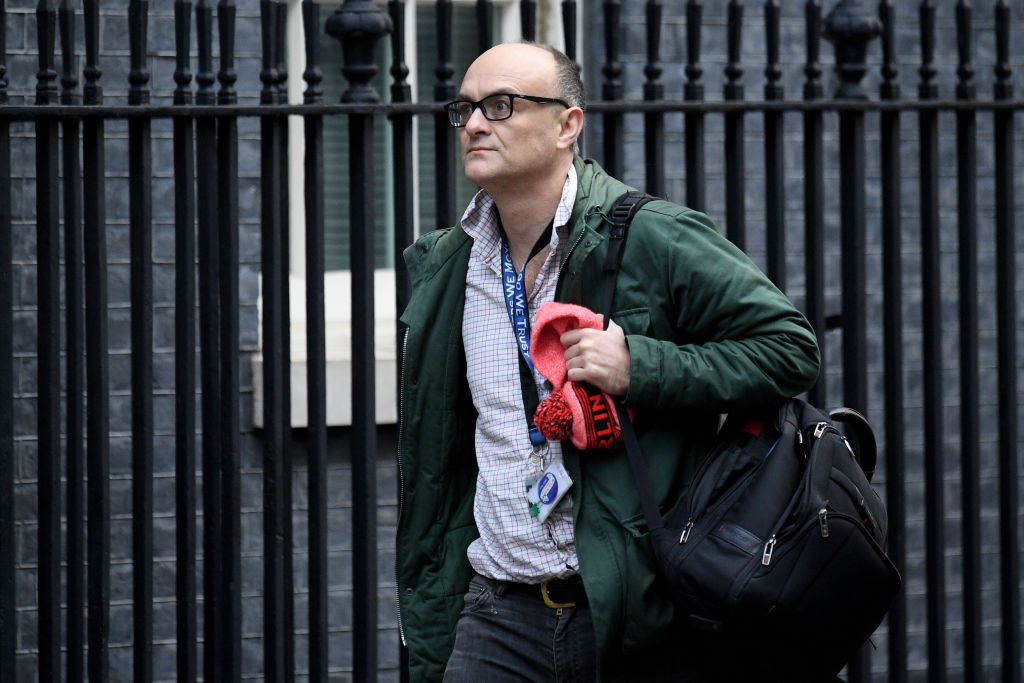Lee Cain’s departure raises an important question: what is the point of Boris Johnson’s legion of Spads? The government has never been so stuffed with advisors, and yet it has also rarely been so chaotic.
We live in an era in which the special advisor has more control over events than ever before; no Spad in Downing Street has ever had the power of Dominic Cummings. The Barnard Castle debacle – which surely would have resulted in the dismissal of anyone else – showed this all too clearly. But this rival power base has hindered, rather than helped, Boris Johnson.
There is, of course, nothing new about the Downing Street advisor. Thatcher had Oliver Letwin and David Willets in her policy unit. Blair had Geoff Mulgan, Jonathan Powell and Alastair Campbell, all of them brilliant in their own way. The Cameron premiership seems like a halcyon era of special advisor intellectual clout in retrospect; Paul Kirby and James O’Shaughnessy were both impressive and vital to the Cameron project. Yet as special advisors have grown in power, cabinet ministers have come to fear them. The result is that loyalty and ideological alignment have become more important than intellectual clout. But surely brains, rather than loyalty, is what a PM really needs?
Other than Campbell, very few of the names above will be familiar to the average person for the time they spent as advisors. This is no bad thing. Until very recently, Spads were kept in the background. Just becoming the story, even if you had done nothing wrong, was enough to get you sacked as an advisor. Anonymity, not infamy, was part of the special advisor deal.
While this wavered a little over the years – Campbell became a known public figure while still working as an advisor, as did Steve Hilton – it wasn’t until Dominic Cummings’s press conference back in May that a line was crossed.
Before then, the very idea of an advisor giving a press conference would have been unthinkable; Spads had always been kept in the shadows, sheltered from public scrutiny, for good reason. Suddenly we had one giving his own public explanation to the media, in the Downing Street rose garden. The fact that Cummings became unsackable at the time was key as well. No previous Spad had ever been considered irreplaceable. Giving Cummings this power of invincibility has shaped Boris Johnson’s premiership more than almost anything else.
Which brings us back to Lee Cain. Is his resignation the first sign in a chain of events that will change Boris Johnson’s premiership? Could it mark the beginning of the end for Boris? Cain and Cummings are close, and there is a battle going on within No. 10 at present. The key question now is whether Dominic Cummings will follow his friend and ally out the Downing Street door.
The timing of all this drama can’t be ignored either. We are down to the wire in the UK-EU trade negotiations; it is almost certain the EU will give the UK a take-it-or leave-it offer in the coming days.
But what effect will this Downing Street psychodrama have on what Boris decides to do when it comes to Brexit? Is Cain walking – and Cummings possibly on the precipice of doing so – actually about Boris considering caving into EU demands on outstanding items?
Even if this isn’t the case, it is reasonable to wonder whether Dominic Cummings leaving No. 10, for whatever reason, might cause Boris to wonder if no deal is really something he wants to do without his policy guru leading the way off the cliff. Having the man whose job he guarded after the Barnard Castle incident leave his side could weaken his resolve to push ahead with no deal. Cummings cost the PM a lot of political capital during the pandemic. And his departure will leave Boris in trouble, without an advisor he has, rightly or wrongly, come to desperately rely on.
This, then, is why the Spadocracy and this petty internecine row which has embroiled the PM matters. What plays out in Downing Street over the coming days could be the most crucial element in deciding the entire future of the United Kingdom. What happens to our trading relationship with the EU for years to come might come down to the relationships between the Prime Minister and the unelected people he has around him. We will soon see what Boris plans to do with the EU, and how much that affects his ability to remain Prime Minister. Yes, Lee Cain’s departure and the ensuing row is parochial. But in this age of the Spad, make no mistake: this marks a crucial moment in Boris Johnson’s time in power.







Comments